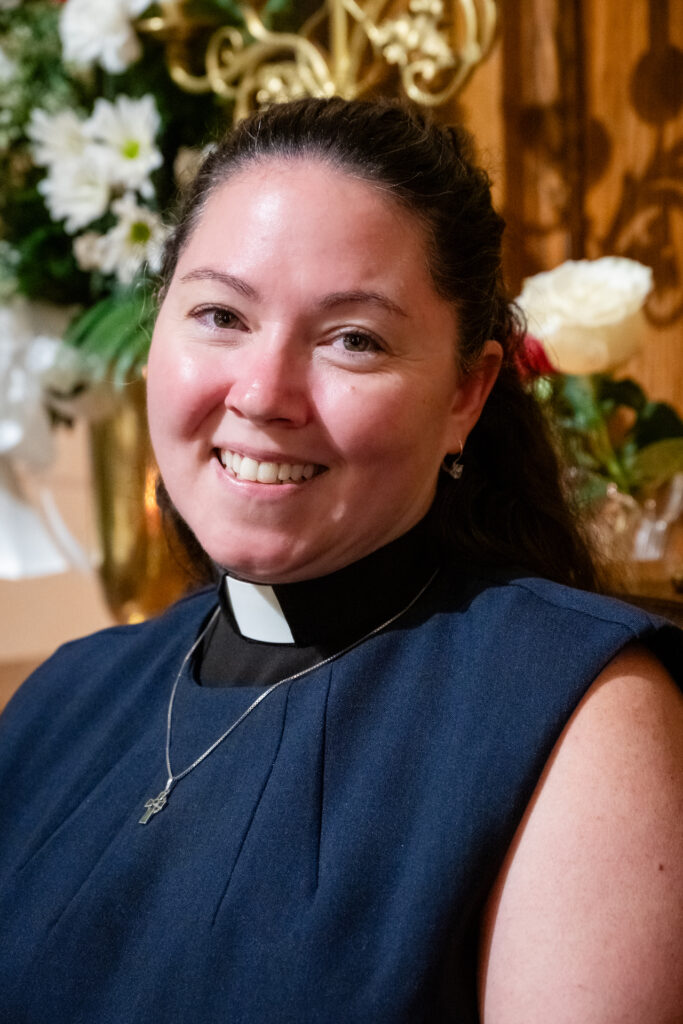Right Then and There

“I don’t want to offend anyone or lose my friends.” That was the reason one of my church council members gave as to why she holds back from talking to her close friends about faith.
Her response came from a discussion we were having about the importance of building intentional relationships with friends and neighbors with whom we can talk about what it means to be a follower of Jesus Christ. It’s reasonable to understand her hesitancy. Yet, simultaneously, sadly, this is an excuse many believers fall back on because they don’t know how. Admittedly, I have not been exempt from using it myself, that was until one day, I was moved to change.
I had been invited as a guest to attend an NALC Regional Convocation. During one of the breaks, I had an engaging conversation with four individuals from the same church, who were attending as a group. They had asked me about my seminary experience. Up to that point, I had had difficulties with the ELCA candidacy process and I was contemplating leaving to join the NALC.
Throughout our exchange, I noticed how easy it was to talk to them. Even though I was a fish out of water, so to speak, they never made me feel uncomfortable. Their questions were genuine, not attacking or forceful, all while respectful. As we neared the end of the break, they asked if they could pray for me. As I told them that I would appreciate it if they would, they did something quite unexpected; rather than going on their way, they surrounded me, each placing a hand on my shoulder or arm, and began to pray for me, right then and there. It caught me by surprise because I had never had someone not only offer to pray for me but to do it! Over the next few minutes, each of them took a turn praying over something they had picked up on as they listened in, praying for God to give me the insight I needed to make my decision, whatever it was to be, for strength and guidance to go wherever He called me. As they ended, I opened my eyes to find that there were no longer four people surrounding me; passersby had also stopped to pray, placing their hands on those around me.
That day, I witnessed a group of believers demonstrate what following Jesus looks like, and I saw that conversations about life and faith don’t have to be divisive, inspiring me to do the same.
When our Lord encountered someone who was spiritually and/or physically hurting, he didn’t attack them. He didn’t simply offer to pray for them and then continue on his way. Instead, he stopped and prayed over them at that moment.
In the years since, I have stepped out of my comfort zone and offered to pray for strangers—even even someone who struck up a conversation with me on a flight home from Texas.
The feeling I have after praying for someone is that of joy. Doing so reminds me of Luke’s Gospel, where Jesus sends out his disciples ahead of him. As Christ told his disciples (I’m paraphrasing), “If you meet someone receptive to the Word, have a conversation; if they are not, don’t force it and go on your way.” However, I have never encountered anyone who refused my offer of, ‘Can I pray for you?’
Yet, encouraging her and telling her how to do it—based on scripture—only goes so far. While I have had such a positive experience, I find myself asking how I can help empower my councilwoman to set aside her fear and step out in faith.
Her fear is reminiscent of the disciples when Jesus told them to feed the five thousand. They had no clue how, and they certainly didn’t believe they had what it took to get the job done until their shepherd showed them the way. Their reaction was evident; they needed more time to be equipped and empowered.
After they had spent some time watching and learning how Jesus ministered to others, he released his disciples to try it for themselves. That’s when he instructed them how to minister to those receptive to the Word of God and to those who are not. When they came back to him, they reported incredible joy. As her earthly Shepherd, I can see how God has prepared her to spend time with me to learn how to follow Jesus.









